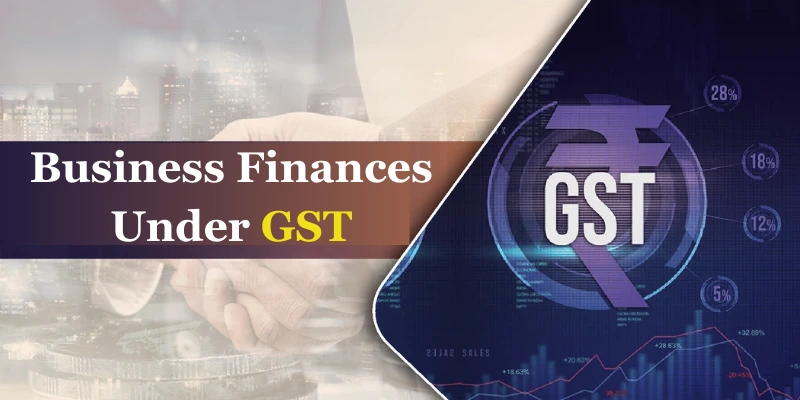
If you’re a business owner in today’s fast-paced economy, you already know how crucial it is to manage finances smartly. Taxes, compliance, and accurate bookkeeping can feel like a never-ending cycle. That’s where the Goods and Services Tax (GST) plays a huge role. By streamlining indirect taxes, GST has made it easier for businesses to track, manage, and optimize their financial operations. But here’s the catch many entrepreneurs still struggle to take full advantage of GST benefits. The good news? With the right knowledge and tools, you can turn GST into a game-changer for your business. If you’re new to this area, learning from a reputed institute like FITA Academy can give you the practical knowledge to manage GST smoothly and confidently.
Let’s explore some practical ways you can optimize your business finances under GST.
1. Understand Input Tax Credit (ITC) Like a Pro
One of the biggest advantages of GST is Input Tax Credit (ITC). In simple terms, ITC allows you to claim the tax you’ve already paid on purchases while filing your returns. This means less double taxation and more savings.
For example, if you buy raw materials worth ₹1,00,000 and pay ₹18,000 as GST, you can claim that amount as a credit while paying your own GST liability. This small step helps reduce your overall tax burden and ensures you’re not paying more than you should.
The key here is proper record-keeping and timely filing. Missing invoices or incorrect entries can lead to losing credits that rightfully belong to your business.
2. Automate GST Filing With Technology
Gone are the days when businesses maintained huge ledgers manually. Today, digital platforms and software have made GST compliance much easier. Whether you run a startup or a medium-sized enterprise, automating GST filing ensures accuracy, saves time, and reduces errors.
Using accounting software also gives you real-time insights into your tax liabilities, pending credits, and financial position. Many business owners in Chennai have found success by complementing automation with structured learning, like taking a GST Course in Chennai, which bridges the gap between theory and practice. By combining software with practical knowledge, you get a system that’s accurate and stress-free.
3. Streamline Cash Flow Management
Cash flow is the lifeline of any business. Under GST, managing your cash flow efficiently is more important than ever. Since GST works on a supply-based taxation system, delayed invoices or late payments can affect your working capital.
To optimize this, ensure that your invoices are raised on time and payments are collected without delays. Using GST-compliant invoicing software helps you keep track of pending payments and due dates. It also ensures that you’re not blocking too much money in tax credits.
When cash flow is managed efficiently, businesses can reinvest in operations, scale faster, and stay ahead of competitors.
4. Keep Accurate Books of Accounts
Finance optimization under GST isn’t just about filing returns it’s about keeping your entire accounting system accurate. A small mistake in bookkeeping can snowball into penalties, compliance issues, or even loss of reputation.
This is where accounting tools like Tally come in handy. They are widely used by businesses across India for maintaining GST-compliant records. If you want to strengthen your financial management skills, taking a Tally Course in Chennai can equip you with hands-on expertise in managing accounts, creating reports, and ensuring compliance under GST. With strong bookkeeping foundations, businesses can make smarter decisions and avoid unnecessary risks.
5. Regularly Review GST Rates and Updates
GST isn’t static rates, exemptions, and rules change periodically. If you’re not staying updated, you could be paying more tax than required or missing out on new benefits.
Regularly reviewing official GST notifications or consulting a tax expert can keep you informed. This knowledge helps in better pricing strategies, cost control, and competitive advantage. For instance, if a product you sell has recently shifted to a lower GST slab, you can pass that benefit on to your customers, boosting goodwill and sales.
6. Train Your Team for GST Compliance
A lot of businesses make the mistake of relying on just one person for GST filing and compliance. But in reality, your entire finance team should be well-versed in GST basics. Training your staff ensures there are fewer mistakes, more accountability, and smoother processes.
If you’re in Chennai, you have the added advantage of access to several reputed training centers. Joining a Training Institute in Chennai can help your employees gain structured learning on GST, accounting, and compliance. When your team is trained, you reduce dependency on external consultants and save costs in the long run.
7. Conduct Regular Internal Audits
Internal audits aren’t just for big corporations. Even small businesses can benefit from reviewing their GST returns, invoices, and ITC claims regularly. Audits help spot errors early, ensure compliance, and prepare your business for any official inspection.
Regular checks also allow you to identify areas of financial leakage, like missed credits or overpaid taxes. This simple step keeps your business lean, compliant, and financially strong.
GST has simplified taxation in India, but optimizing your finances under GST requires more than just filing returns on time. From mastering ITC to leveraging automation, accurate bookkeeping, and team training, every small effort adds up to significant financial efficiency.
By combining knowledge, technology, and smart strategies, you can transform GST from a compliance burden into a powerful tool for financial optimization.
Also Read: What Are the Key Differences Between GST and VAT?